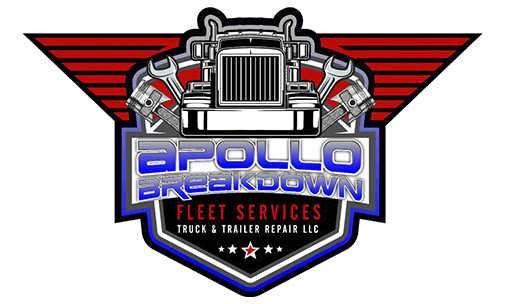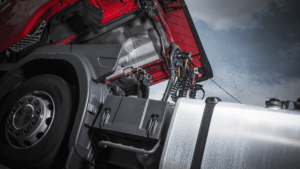Are you hitting the road for a big adventure but worried about the safety of your trailer hitch? Look no further! In this blog post, we will cover everything you need to know about trailer hitch repair and maintenance to ensure smooth sailing on your next journey. From common issues to expert tips, buckle up as we dive into the world of safe towing on the road.
Apollo saves you time and money to keep you moving, visit our website here.
Importance of Maintaining Your Trailer Hitch
Maintaining your trailer hitch helps to prevent accidents and mishaps on the road. A well-maintained hitch ensures that your trailer is securely attached to your vehicle, reducing the risk of it coming loose while driving. This not only protects you and other drivers on the road but also prevents damage to both your vehicle and the trailer.
Regular maintenance of your trailer hitch can prolong its lifespan and save you money in the long run. Over time, exposure to harsh weather conditions or frequent use can cause wear and tear on your hitch components. By regularly inspecting and lubricating these parts, you can identify any potential issues early on before they become bigger problems.
Moreover, maintaining your trailer hitch also ensures optimal performance while towing. A properly maintained hitch will have all its components functioning at their best capacity, allowing for smooth handling of your towed load.
Signs that Your Trailer Hitch Needs Repair
It is crucial to regularly inspect your trailer hitch for signs of wear and tear. Ignoring these signs can lead to serious safety hazards while towing on the road. In this section, we will discuss some common signs that indicate your trailer hitch needs repair.
1. Excessive Rust or Corrosion: One of the most apparent signs that your trailer hitch needs repair is excessive rust or corrosion. Over time, exposure to moisture and road salt can cause rusting on metal components of the hitch, weakening its structural integrity.
2. Loose or Damaged Bolts: The bolts that hold the trailer hitch in place can also become loose due to constant use and vibrations from bumpy roads. If you notice any loose bolts or if they appear damaged, it’s essential to tighten or replace them immediately.
3. Swaying While Towing: If you feel your vehicle swaying while towing a trailer, it could be a sign that something is wrong with your trailer hitch. A properly functioning hitch should keep both vehicles securely connected without any swaying motion during travel.
4. Uneven Weight Distribution: A well-functioning trailer hitch distributes weight evenly between your vehicle and the attached load-bearing structure of the towed item (such as a boat or caravan). If you observe uneven weight distribution while loading up for a trip, it could be due to a faulty trailer hitch.
5. Unusual Noises or Vibrations: Any unusual noises or vibrations while towing could be a sign of a damaged or worn-out trailer hitch. It is crucial to get this checked by a professional mechanic as soon as possible, as it could lead to complete failure of the hitch if left unaddressed.
Do you want to restore the performance of your vehicle? We can help you, contact us now!
Common Types of Trailer Hitches and Their Parts
In this section, we will discuss the most common types of trailer hitches and their corresponding parts.
1. Ball Hitch: This is the most commonly used type of hitch and it consists of a ball mount, coupler, and hitch ball. The ball mount is mounted to the vehicle’s frame and it provides a mounting point for the hitch ball. The coupler is attached to the trailer’s tongue and it locks onto the hitch ball, creating a secure connection between the vehicle and the trailer.
2. Gooseneck Hitch: This type of hitch is typically used for heavy-duty towing as it can handle heavier loads compared to other types of hitches. It consists of a gooseneck ball that is mounted in the bed of a pickup truck and a coupler that attaches to the trailer’s kingpin.
3. Fifth Wheel Hitch: Similar to gooseneck hitches, fifth wheel hitches are also designed for heavy-duty towing. They consist of a kingpin that extends from the front end of a semi-trailer or RV, which then connects to a horseshoe-shaped coupling plate mounted on top of a pickup truck’s rear axle.
4. Weight Distribution Hitch: This type of hitch is recommended for larger trailers as it helps distribute weight evenly between the tow vehicle and trailer, providing better stability while towing.
5. Pintle Hitch: Used mainly for commercial purposes such as hauling construction equipment or farm machinery, pintle hitches have been around since ancient times but have been modernized over time.
Safety Tips for Towing with a Repaired Hitch
To ensure safe towing with a repaired hitch, here are some important tips to keep in mind.
1. Get Your Hitch Professionally Repaired: The first and most crucial step is to get your hitch professionally inspected and repaired by a certified mechanic. Attempting to repair it yourself or relying on an inexperienced individual may result in further damage and potential hazards while on the road.
2. Check for Any Signs of Damage: Before each trip, thoroughly inspect your hitch for any signs of damage such as cracks, rust, or wear and tear. If you notice any issues, do not attempt to tow until they have been properly addressed by a professional.
3. Properly Lubricate Moving Parts: A well-lubricated hitch will function more smoothly and reduce strain on the vehicle while towing. Make sure to regularly lubricate all moving parts according to the manufacturer’s recommendations.
4. Use Appropriate Weight Limits: It is crucial to know the weight limits of both your vehicle and trailer when towing with a repaired hitch. Overloading can put excessive strain on the hitch and lead to accidents.
5. Secure All Connections: Double-check that all connections between your vehicle and trailer are secure before hitting the road. This includes safety chains, electrical wiring, and couplers.
¿Looking for professional help? Our team is 100% trained to help you and solve any problem, visit our website now!
Future Maintenance Tips for Long-lasting Results
We will discuss some future maintenance tips that will help you achieve long-lasting results with your trailer hitch.
1. Regular Cleaning: One of the simplest ways to maintain your trailer hitch is by regularly cleaning it after each use. This includes removing any dirt, debris, or grime from all the moving parts of the hitch. You can use a mild soap and water solution or a degreaser to clean the hitch properly.
2. Lubrication: Proper lubrication is essential for smooth operation of your trailer hitch. Make sure to apply a high-quality lubricant on all moving parts such as the ball mount, coupler, and safety chains at least once every three months or more frequently if you use your trailer frequently.
3. Check for Wear and Tear: Regularly inspect your trailer hitch for any signs of wear and tear, including cracks, rusting, loose bolts, or damaged hardware. If you notice any issues, make sure to address them immediately before using the hitch again.
4. Tighten Loose Bolts: Due to regular use and vibrations while on the road, bolts on your trailer hitch may become loose over time. To ensure safe towing, it is crucial to check all bolts and tighten them if necessary before each trip.
5. Tire Pressure: The tire pressure of both your vehicle and trailer should be checked regularly as underinflated tires can put extra strain on your tow vehicle’s engine when hauling heavy loads.
Call us for truck repair road service here. We are in Florida, Texas and Georgia. Open 24/7.






